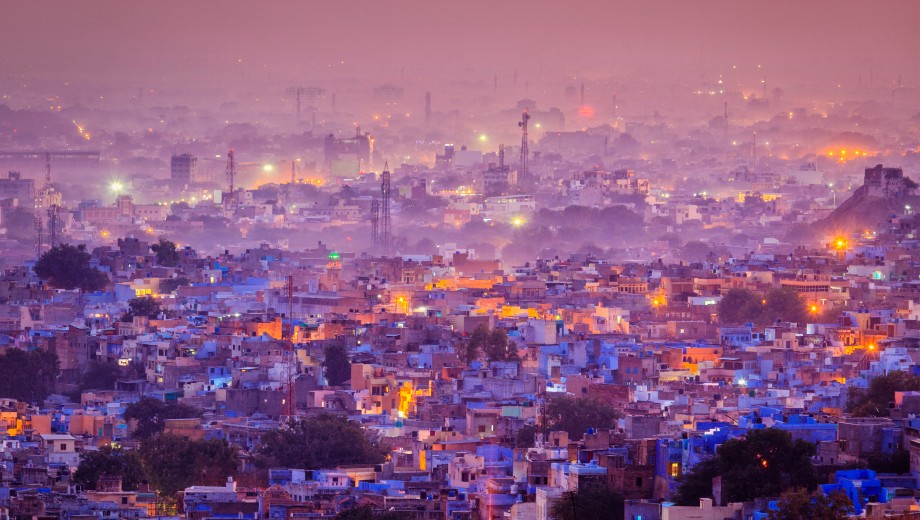By now the COVID-19 outbreak has been a reality in some parts of the world for nearly a year. But in late spring, Alyssa Ayres, AM’96, PhD’04, was already struggling to understand the effects of the pandemic and the subsequent lockdowns implemented to slow its spread.
As the senior fellow for India, Pakistan, and South Asia at the Council on Foreign Relations, Ayres studies and advises on India’s role in the world and US relations with South Asia, broadly speaking. The fact that the pandemic had halted her normal schedule of international and domestic travel was the least of her concerns.
How would global roles change—or would they? How would India, with its dependence on migrant laborers who largely fled the cities, open up again? What kind of economic domino effect would result, and for how long?
“This is all unfolding right now so we have more questions than answers,” says Ayres, who served as US deputy assistant secretary of state for South Asia before coming to CFR. “In foreign policy, you usually don’t get to choose your own priorities, and, as the saying goes, at times the ‘urgent crowds out the important.’” Less than two weeks after making that statement, Ayres was talking to PBS, CNN, and other news outlets about the border dispute between India and China in the Himalayas.
Pandemic or not, South Asia looms large on the global stage. India, the world’s largest democracy, has one of the world’s largest economies. India and Pakistan have nuclear weapons and a historical antipathy. Throughout the region—as in much of the world—there are pressing concerns around the environment, urbanization, religious strife, and rising nationalism.
Ayres’s research efforts have touched on all of those issues. Her first book, Speaking Like a State: Language and Nationalism in Pakistan (Cambridge University Press, 2009), which grew out of her UChicago dissertation in South Asian Languages and Civilizations on nationalism and language in Pakistan, won the American Institute of Pakistan Studies book prize. A few years ago, she and two CFR colleagues conducted a collaborative project on the new geopolitics of India, China, and Pakistan. In her most recent book, Our Time Has Come: How India Is Making Its Place in the World (Oxford University, 2018), she charts India’s rise to global prominence.
In many ways, Ayres lives the life of an academic: she researches, publishes, collaborates with other scholars. What distinguishes work at a think tank like CFR, Ayres says, is “an emphasis on impact and providing analysis and recommendations to address current public, rather than more disciplinary-focused, concerns.” On any given day Ayres might brief a member of Congress, give a formal presentation to a foreign policy organization, respond to media inquiries on a developing issue, write a blog post for CFR’s Asia Unbound, compose a longer essay for a policy journal or a more widely distributed magazine like Time, or work on her current book project, which examines how India’s rapid urbanization will shape its future.
“One of India’s defining domestic challenges in the 30 years to come is managing the growth of its cities,” Ayres says. If estimates hold, more than 400 million Indians will shift to cities; by 2050 the majority of the country’s projected population of 1.6 billion will live in urban areas. Delhi is projected to surpass Tokyo as the world’s most populous metropolitan region around 2030. By examining a handful of Indian megacities, Ayres will take up questions emerging from this process: the future of work, building for resilience to climate change, and governance at the municipal level—all in a world in which global cities are networked with each other like never before.
To reach a broader audience than she might with a book, Ayres posts regularly on Twitter (@AyresAlyssa), which she also uses to learn about breaking events, noting, “It is usually much faster in the news cycle” than traditional outlets.
Policy work is a different track than Ayres expected. After first studying in India during a semester abroad during her junior year at Harvard, she began a doctoral program at UChicago after college. She took time away from the program twice: once to go to Lahore, Pakistan, for a University of California, Berkeley, program in Urdu, and a second time when the International Committee of the Red Cross recruited her to work as an interpreter in Jammu and Kashmir.
Seeing the direct impact of her work with the ICRC caused Ayres to question her path and leave UChicago altogether to work in the policy programs division of the Asia Society. Though she came back to complete her graduate education, throughout her doctoral program Ayres was unsure of how she wanted to use it. “These are hard questions for some of us to answer,” she says, “and I will not lie, I am still asking them.”
Whitney Cox, AM’00, PhD’06, a graduate school contemporary of Ayres’s and associate professor and past chair of SALC, admires Ayres’s ability to chart a course from graduate school to an international strategic advisory firm before the US State Department, saying, “She’s done really interesting work that extends from her time here.”
As a result of her winding trajectory, Ayres is eager to talk to UChicago doctoral students who are interested in careers outside the academy.
“Sometimes it helps to brainstorm different pathways of possibility,” she says. “And no one—I repeat, no one—is ever a failure for recognizing that their capabilities, potential, and purpose align well with fields that take them beyond academic disciplines.”

